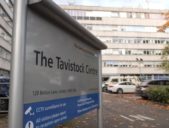 A judgement handed down from the High Court yesterday (1 December 2020) ruled that puberty blockers (PBs) and cross-sex hormones (CSH) are ‘innovative and experimental’ treatments and that it is unlikely that children and young people will be able to give informed consent to the use of such treatments.
A judgement handed down from the High Court yesterday (1 December 2020) ruled that puberty blockers (PBs) and cross-sex hormones (CSH) are ‘innovative and experimental’ treatments and that it is unlikely that children and young people will be able to give informed consent to the use of such treatments.
The case had been brought to consider the prescribing of puberty blockers, often described as a method of ‘pressing pause’ on normal pubertal development in order to give a child time to think about whether to continue to develop in their natal sex or to progress to cross-sex hormones. However, the court found that in reality ‘the vast majority of children who take PBs move on to take cross-sex hormones, that Stages 1 and 2 are two stages of one clinical pathway and once on that pathway it is extremely rare for a child to get off it.’ Precise figures on this were not available, as neither the Gender Identity Development Service (GIDS) nor the Tavistock and Portman NHS Foundation Trust had been able to provide this data to the court.
The court noted, therefore, that the child needs not only to be competent to give informed consent to Stage 1 of the pathway, but also to understand the significant, irreversible, life-changing effects of Stage 2, in the likely event that they proceed to it. The court felt that the known consequences of taking cross-sex hormones were beyond the capability of most children to fully comprehend – let alone the unknown ones:
Although a child may understand the concept of the loss of fertility, for example, this is not the same as understanding how this will affect their adult life. A child’s attitude to having biological children and their understanding of what this really means, is likely to change between childhood and adulthood. For many children, certainly younger children, and some as young as 10 and just entering puberty, it will not be possible to conceptualise what not being able to give birth to children (or conceive children with their own sperm) would mean in adult life.
The court also expressed surprise that although the GIDS Service Specifications note that, ‘There seems to be a higher prevalence of autistic spectrum disorder (ASD) conditions in clinically referred, gender dysphoric adolescents than in the general adolescent population,’ they themselves were unable to provide any ‘statistics on the number or proportion of young people referred by GIDS for PBs who had a diagnosis of ASD.’ Children with such a diagnosis are considered as vulnerable, and thus entitled to further protections in making significant, life-altering decisions.
In conclusion, the court ruled:
In principle, a young person’s autonomy should be protected and supported; however, it is the role of the court to protect children, and particularly a vulnerable child’s best interests. The decisions in respect of PBs have lifelong and life-changing consequences for the children. … In those circumstances, we consider that it is appropriate that the court should determine whether it is in the child’s best interests to take PBs.
As I have noted previously, too heavy a burden has been placed on children in recent years, with adults abdicating weighty decisions to those they should be protecting. It is good to see the court calling on adults to be adults. Perhaps this will also give the medical profession the backing it needs to stand against the political ideology which has affirmed and supported this ‘betrayal of our own profession’ and ‘betrayal of our children’ as John Greenall put it last week.
Keira Bell, who brought the case along with a mother known as Mrs A, said in her witness statement to the court:
I made a brash decision as a teenager, (as a lot of teenagers do) trying to find confidence and happiness, except now the rest of my life will be negatively affected. I cannot reverse any of the physical, mental or legal changes that I went through. Transition was a very temporary, superficial fix for a very complex identity issue.
We sincerely hope that this ruling will protect many vulnerable children and teenagers from making the same mistakes Keira did.



